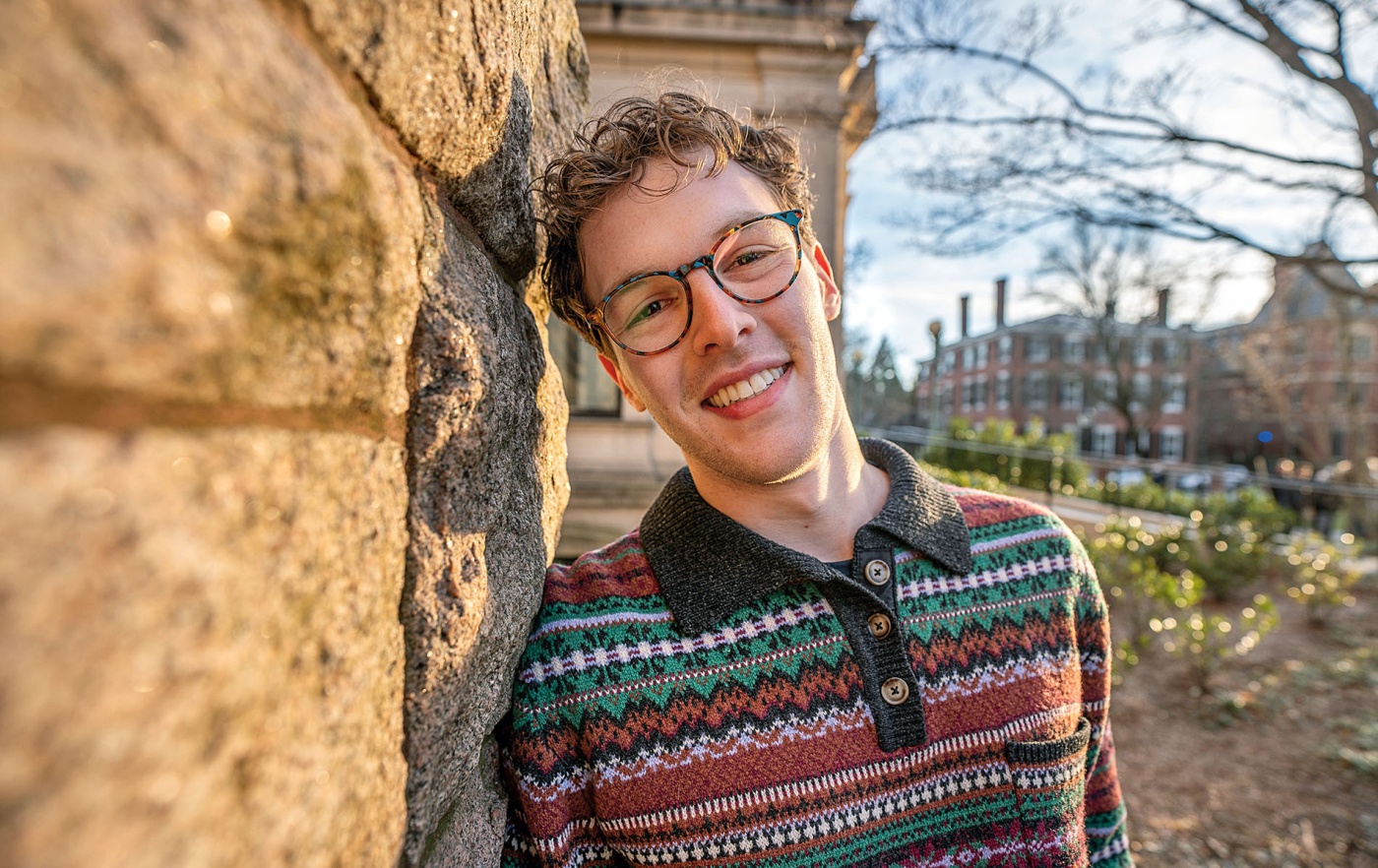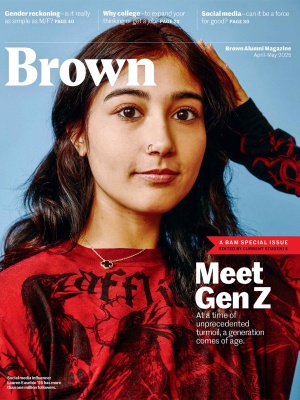Why—and How—Should We Care?
Pre-med senior Myles Ringel does a deep dive into empathy.

How does a doctor tell a mother that her 8-year-old son might drop dead without warning?
It’s the heartbreaking question Myles Ringel ’25 faced while shadowing a genetic cardiologist the summer after his freshman year. After hearing the news, the mother started crying. What happened next profoundly changed how he approaches his own ambition of becoming a doctor.
“It felt rehearsed,” Ringel recalls. “[The doctor] seemed like she almost counted to five, offered a tissue, offered her sympathies, counted to five again, and moved on with the appointment, as if nothing really had happened.”
The moment got Ringel thinking. He wanted to better understand what happened in that examination room, how he could build a foundation—outside of his pre-med requirements—for his future career. “What can I bring to medicine?” he says. “What can I bring to the social role that a doctor has in our society that I wouldn’t get just being a biology major?”
The answer, Ringel decided, is a formal study of empathy he calls “Empathy in Practice.” The independent concentration includes 15 courses, none of which overlap with Ringel’s pre-med requirements. “That’s what makes this so much more fun,” he says, laughing. The course load draws upon more than half a dozen disciplines including anthropology, neuroscience, and literature to investigate the experience of empathy in everyday life.
Empathy is most often studied in psychology, Ringel says, but that’s just one piece of the puzzle. His concentration turns to sociology and anthropology to capture the actual experience of empathy, influenced by social circumstance, identity, and even politics.
“Don’t make eye contact”
Ringel is studying empathy in three main areas—incarceration, homelessness, and racism—and has taken classes specific to each topic. In his studies of the first two, he examines how empathy occurs—or doesn’t—with people who are, for all intents and purposes, invisible. Incarcerated people are inaccessible to the general population and unhoused people are socially invisible, says Ringel. “If you grew up in a city you’re taught, ‘Don’t make eye contact,’” he says.
Ringels’s work explores why and how those of us who have homes empathize, or avoid empathizing, with homeless people. “Then, from the reverse, what does it mean to be in a class that is systematically removed from the gaze of empathy?”
While empathy is often seen as a good thing, Ringel learned that it’s more complex than that. Empathy is a choice, he explains, and sometimes the cost is too high: “If I don’t want to feel upset and my friend is crying, I’m going to not empathize with them.” The cost can be literal, too, such as when empathy means spending, like making charitable donations. “It hurts to come into contact with hurting people—that’s why we turn away from homelessness,” says Michael Berman, a lecturer in anthropology who had Ringel as a student in his class Suffering and Compassion.
Andrea Flores, an assistant professor of education who is Ringel’s concentration advisor, says the importance of balancing the cultivation of empathy with “preserving the individual” comes up in her own research on teachers, who can experience burnout.
Meanwhile, Ringel says, empathy can actually be “really destructive,” like in his third area of study, racism. “There’s strong research to suggest that racism, very fundamentally, is a product of empathy—of empathizing so strongly with an ingroup that you completely reject the outgroup and harm them.”
Empathy can also mean lip service. When people raise empathy as the solution, says Berman, they can get stuck on an imagined connection with suffering people instead of a real engagement with the conditions that produce suffering. That can ironically write out political action.
“Next client, next client”
Ringel’s work examines how people navigate empathy in helping professions, such as medicine or law, which he describes as “emotionally demanding jobs where you have little time to process very heavy things.” It’s something Ringel became familiar with while working with eviction defense lawyers last summer. He often spoke to clients over the phone who had kids, pets, and mental health challenges and no place to go.
“It’s devastating,” he says, “and to just have that happen, and then great, next client, next client, next client, next client….”
While Ringel’s thesis focuses on eviction defense lawyers, he has separately conducted interviews with male doctors practicing maternal-fetal medicine. These doctors fundamentally do not understand the experience of being pregnant, Ringel says. So how can they empathize with their patients?
Some “turned it on its head,” acknowledging their inability to identify as a way to help patients feel understood. Others brought up their wives’ complicated pregnancies or their experiences working with other patients.
It’s what Ringel calls “alternative forms of empathy,” explaining, “It maintains the compassion and it brings them closer together, but without trying to do something that they can’t do.”
Regarding his independent concentration, Ringel says, “One of the really exciting things is that I get to be—saying this with all the fistfuls of salt possible—kind of at the forefront of a cross-
disciplinary field of empathy.”
Ringel says he’s more aware of his own empathy—how to practice it now, and in the future when he’s a doctor, even when he may not have personal experience related to someone else’s distress. Recently, he says, he practiced on the phone with his mother, listening to her talk about her aging parents.
“I just used my ethnography skills a bit,” he says—thanks to a course on the techniques social scientists use to put the people they study at ease so as to get the best information. “Just asking why, asking how, asking follow-ups, just being very calm. And trying to get into the same feeling as she was, but also trying to project the care and the compassion. Everyone does that. I just think that now, I am more cognizant of when I’m doing it.”




